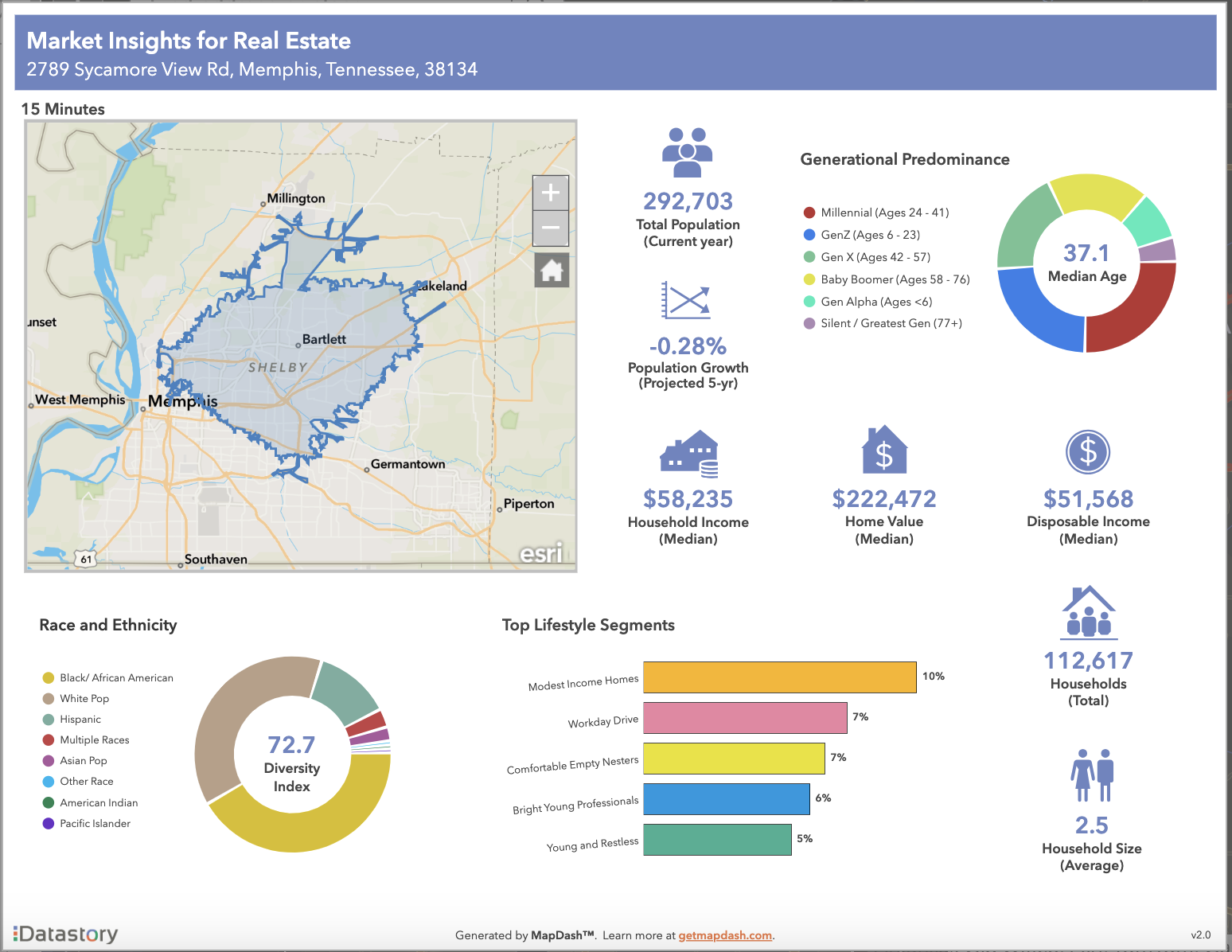Location Intelligence: The Game-Changer for Property Developers & Market Researchers
In the rapidly evolving landscape of property technology (PropTech), location intelligence emerges not just as a tool, but as a pivotal force driving strategic decisions in market development and site selection. For developers and market researchers, the integration of location intelligence into their workflows can be the difference between success and stagnation. Let’s delve into how leveraging location intelligence is revolutionizing these key areas, offering a competitive edge in the dynamic world of real estate development.
The power of place in market development
The essence of successful market development in real estate lies in identifying and capitalizing on untapped opportunities. Location intelligence serves as the linchpin in this process, providing a multidimensional view of the market landscape that cannot be gleaned without data. By harnessing data that encompasses demographic trends, economic indicators, and consumer behavior patterns—all spatially contextualized—developers gain unparalleled insights into where their next big opportunity lies.
MapDash comes pre-configured with a real estate development opportunity score layer to empower real estate professionals to understand local markets across the US.
Imagine being able to predict the next up-and-coming neighborhood or commercial hub before it hits the mainstream radar. Location intelligence enables just that, by analyzing patterns of urban migration, changes in income levels, and emerging consumer preferences. This foresight allows developers to make informed decisions, positioning their projects to meet the future demands of the market.
MapDash™ provides turnkey location intelligence to real estate developers looking for a data-driven competitive edge. From a robust data library with up-to-date and authoritative sources of demographic, environmental, local economic, and other key information, real estate professionals can easily add critical market context to a map. Simple to use location analysis tools enable deeper insight into what this data means for a particular real estate market opportunity, while infographic and report templates streamline communicating results with stakeholders. MapDash is specifically designed to allow real estate developers to harness the power of location intelligence without the heavy technical lift required by competing solutions.
It’s location intelligence, simplified.
Top 4 use cases for location intelligence in real estate
As the saying goes, real estate is all about location, location, location - so there are almost endless ways to leverage location intelligence for market analysis and development. However, a few workflows stand out from the test in their popularity amongst real estate professionals: site selection, predictive analytics, due diligence, and sustainable development.
Site selection
Choosing the right site goes beyond the traditional considerations of cost and accessibility. It's about understanding the intricate tapestry of factors that make a location viable and attractive. Location intelligence brings a sophisticated analytical approach to site selection, incorporating layers of geospatial data that reveal the hidden potential of sites.
For residential developments, this might involve analyzing proximity to amenities, quality of local schools, and transportation links. For commercial projects, the focus could shift to foot traffic, proximity to complementary businesses, and the competitive landscape. Location intelligence tools synthesize these diverse data points, offering a holistic view that ensures a site not only meets the current needs of a project but is also resilient to future market shifts.
By simply toggling on a foot traffic data layer to MapDash, real estate developers can instantly visualize how many people frequent local businesses, and what lifestyles they cultivate.
Predictive analytics
Understanding the future viability of real estate markets is now possible through predictive analytics and data modeling. Location intelligence elevates traditional approaches to forecasting by enabling real estate developers to predict future trends based on historical and current data. For example, developers and market researchers can anticipate changes in population density, zoning regulations, and market saturation levels, allowing for strategic planning that mitigates risk and maximizes ROI.
Due diligence
The due diligence process in real estate can be daunting, fraught with complexities and the risk of oversight. Location intelligence streamlines this process, offering comprehensive insights that ensure thorough evaluation. From environmental assessments and regulatory compliance to analyzing the socioeconomic fabric of the surrounding area, developers can navigate the due diligence landscape with confidence, backed by data-driven insights and detailed, map-based reports for stakeholders.
Pre-made report and infographic templates make it easy to share location intelligence insights with all stakeholders and back up strategic decision-making.
Sustainable development
As the world gravitates towards sustainability, location intelligence plays a crucial role in promoting greener development practices. By analyzing environmental data and urban planning trends, developers can design projects that align with sustainability goals, from minimizing carbon footprints to enhancing green spaces. This not only fulfills regulatory and societal expectations but also appeals to the growing demographic of eco-conscious consumers.
Location intelligence simplified
For property developers and market researchers, embracing location intelligence is not just about staying competitive; it's about redefining the paradigms of market development. In a realm where the value of real estate is intrinsically tied to location, the ability to analyze and interpret the complexities of geospatial data is invaluable. As we look to the future of PropTech, location intelligence stands out as a critical ally, empowering developers to make informed decisions that shape the landscapes of tomorrow.
In harnessing the power of location intelligence, opportunities are no longer about finding the right spot on the map. They’re about weaving together a tapestry of data, insights, and foresight that propels the real estate industry into new frontiers of innovation and growth. To see how MapDash can help you craft your own real estate success story, get in touch with the Datastory team.



